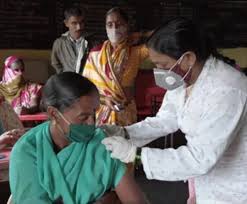
Certificate in Community Health
Certificate in Community Health - Overview
Duration:
-
1 year (depending on the institution and program structure).
Mode of Study:
-
Full-time or part-time
-
Blended learning (online and in-person) or purely in-person.
Eligibility:
-
Minimum qualification: High School (10+2) or equivalent.
-
Some institutions may also accept candidates with a background in healthcare or related fields (e.g., nursing, social work).
Target Audience:
-
Aspiring community health workers
-
Health professionals seeking specialization in community health
-
Social workers, healthcare managers, and educators
-
Anyone interested in promoting health at the community level
Certification:
-
On successful completion of the program, students are awarded a Certificate in Community Health, which can enhance employability in the public health sector, NGOs, government programs, and healthcare organizations.
one-year syllabus for a Certificate Course in Community Health
Module 1: Introduction to Community Health
-
Understanding Community Health
-
Definition, scope, and importance of community health
-
Global and local health challenges
-
Health systems and health policies
-
Role of community health workers
-
-
Social Determinants of Health
-
Social, economic, and environmental factors
-
Health equity and social justice in health
-
Poverty, education, housing, and nutrition's impact on health
-
Module 2: Health Promotion and Disease Prevention
-
Principles of Health Promotion
-
Strategies for health promotion
-
Approaches to health education
-
Behavior change theories and models
-
Community mobilization and participation
-
-
Disease Prevention and Control
-
Primary, secondary, and tertiary prevention
-
Immunization programs
-
Screening and early diagnosis
-
Prevention of non-communicable diseases (NCDs)
-
Infectious disease management and control
-
Module 3: Maternal and Child Health
-
Maternal Health
-
Antenatal care and postnatal care
-
Safe motherhood initiatives
-
Family planning and reproductive health education
-
Gender health issues and maternal mortality
-
-
Child Health
-
Growth and development milestones
-
Immunization schedules
-
Nutritional needs of infants and children
-
Child care and common childhood illnesses
-
Module 4: Nutrition and Public Health
-
Basic Nutrition Principles
-
Macronutrients and micronutrients
-
Malnutrition and its impact on communities
-
Nutritional assessment and interventions
-
Public health nutrition programs
-
-
Nutrition in Community Health
-
Nutritional needs of different age groups
-
Addressing malnutrition and food insecurity
-
Promoting healthy eating habits in communities
-
Module 5: Environmental Health
-
Sanitation and Hygiene
-
Importance of sanitation in community health
-
Safe drinking water and waste management
-
Promoting hygiene practices
-
Environmental factors affecting health (air, water, soil quality)
-
-
Occupational Health
-
Workplace health hazards
-
Health and safety regulations
-
Preventing occupational diseases and injuries
-
Module 6: Health Communication
-
Effective Communication in Health
-
Principles of health communication
-
Role of media in health education
-
Community-based communication strategies
-
Promoting health through digital platforms
-
-
Community Engagement and Advocacy
-
Mobilizing communities for health improvement
-
Health policy advocacy
-
Partnerships with local governments and organizations
-
Module 7: Epidemiology and Research Methods
-
Introduction to Epidemiology
-
Basic principles of epidemiology
-
Types of epidemiological studies
-
Disease surveillance and outbreak investigations
-
-
Research in Community Health
-
Research methodologies and data collection
-
Analyzing and interpreting health data
-
Community-based participatory research
-
Module 8: Healthcare Systems and Policies
-
Healthcare Delivery Models
-
Primary healthcare and its principles
-
Role of public and private sectors in healthcare
-
Health insurance and financing in community health
-
-
Health Policy and Planning
-
Policy development and implementation
-
Planning and managing community health programs
-
Monitoring and evaluation of health interventions
-
Module 9: Field Work/Internship
-
Practical Field Work
-
On-the-job training in community health settings
-
Community health assessments and data collection
-
Direct interaction with community members and health providers
-
Reporting and documentation of fieldwork experiences
-
Assessment and Certification
-
Regular assignments, quizzes, and case studies
-
End-of-course project or dissertation
-
Practical assessments based on fieldwork
-
Final examination or oral defense of projects

